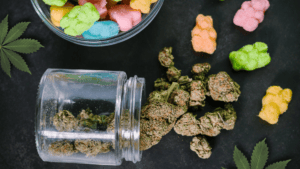
What if I take too much THC and how can I stop or prevent unwanted effects?
The saying goes, “it is possible to have too much of a good thing.” Despite how beneficial any one thing is, a large amount of it may often have the

The saying goes, “it is possible to have too much of a good thing.” Despite how beneficial any one thing is, a large amount of it may often have the
Open the following in new tabs if you:
If you are already a user: Client Login
If you are not, then register: Client Registration
Once Logged in, click below to refresh the page.